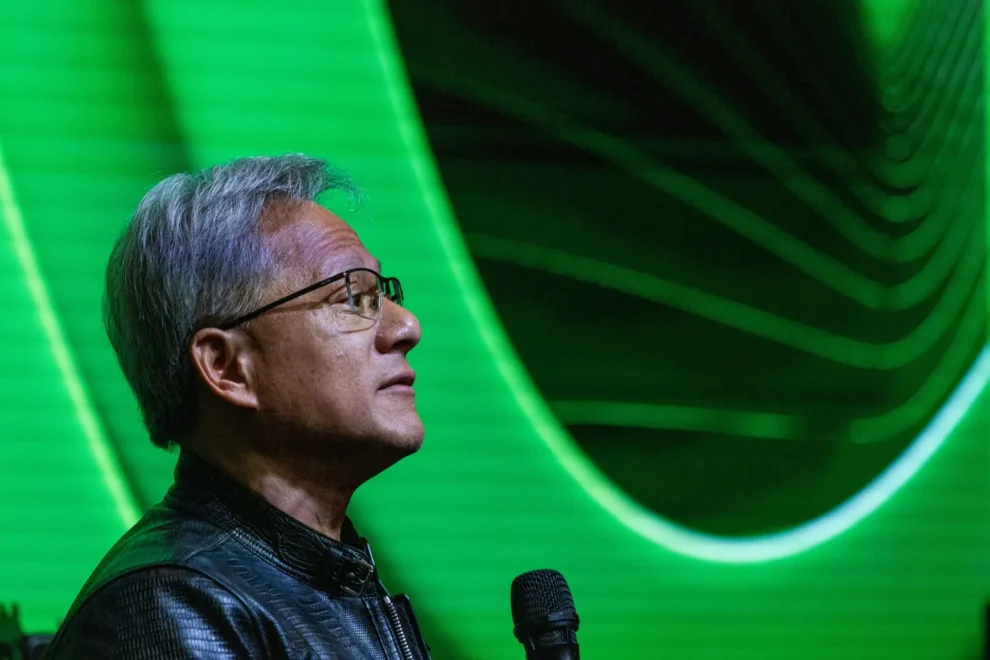In the high-stakes world of artificial intelligence, a billion-dollar patent dispute is brewing, threatening to disrupt the industry. Nvidia, the renowned tech giant, finds itself in the crosshairs as its groundbreaking Blackwell AI chips face a patent challenge. This legal battle has the potential to reshape the AI landscape, impacting both technological advancements and market dynamics.
The dispute centers around a series of patents related to AI chip architecture and processing technologies. A lesser-known competitor, Graphcore, alleges that Nvidia’s Blackwell chips infringe upon their intellectual property. Graphcore claims that key elements of the Blackwell architecture, including the tensor core design and memory management systems, bear striking similarities to their own patented technologies.
The stakes are high for both companies. Nvidia’s Blackwell chips are poised to power the next generation of AI applications, from autonomous vehicles to advanced medical diagnostics. If Graphcore’s patent claims are upheld, Nvidia could face significant financial penalties and potential restrictions on the production and sales of its Blackwell chips.
This legal battle underscores the intensifying competition in the AI chip market. As AI technologies become increasingly pervasive, companies are racing to develop more powerful and efficient chips. This has led to a surge in patent filings and a heightened risk of intellectual property disputes.
Unpacking the Dispute: A Closer Look at the Allegations
Graphcore’s patent challenge focuses on several key areas of Nvidia’s Blackwell architecture. The company claims that Nvidia’s tensor cores, which are specialized processing units designed for AI workloads, infringe upon their patents related to tensor processing technologies. Additionally, Graphcore alleges that Nvidia’s memory management systems, which are crucial for handling the vast amounts of data involved in AI computations, also violate their patents.
Nvidia has vehemently denied these allegations, asserting that its Blackwell chips are based on its own independent research and development. The company maintains that any similarities between its technologies and Graphcore’s patents are purely coincidental.
The legal battle is expected to be long and complex. Both companies have assembled teams of experienced patent attorneys to argue their case. The outcome of the dispute could have far-reaching implications for the AI industry.
Implications for the AI Industry: A Ripple Effect
The patent dispute between Nvidia and Graphcore has the potential to create a ripple effect throughout the AI industry. If Graphcore’s claims are upheld, it could lead to a significant shift in the competitive landscape. Nvidia’s dominance in the AI chip market could be challenged, opening the door for other players to gain market share.
Furthermore, the dispute could also impact the pace of technological innovation in the AI chip sector. Companies may become more cautious about investing in research and development if they fear that their innovations could be subject to patent challenges.
The legal battle also highlights the importance of intellectual property protection in the AI industry. Companies are increasingly recognizing the value of their patents and are more willing to defend them in court.
The Road Ahead: A High-Stakes Battle Unfolds
The patent dispute between Nvidia and Graphcore is still in its early stages. Both companies are preparing for a protracted legal battle that could take years to resolve. The outcome of the dispute remains uncertain, but it is clear that the stakes are high for both companies.
The legal battle will likely involve a detailed technical analysis of the patented technologies and the alleged infringements. Expert witnesses will be called upon to provide their opinions on the validity of the patents and the extent of any potential infringement.
The court will also consider the commercial impact of the dispute. If Nvidia is found to have infringed upon Graphcore’s patents, it could face significant financial penalties. The court could also order Nvidia to stop producing or selling its Blackwell chips, which would have a major impact on the company’s business.
The patent dispute between Nvidia and Graphcore is a reminder of the complex and competitive nature of the AI industry. As AI technologies continue to advance at a rapid pace, we can expect to see more legal battles over intellectual property.
Personal Experiences and Insights
As someone who has been following the AI industry for many years, I have seen firsthand the rapid pace of innovation in this field. The patent dispute between Nvidia and Graphcore is a clear indication of the intensifying competition in the AI chip market.
I believe that this legal battle will have a significant impact on the AI industry. It could lead to a shift in the competitive landscape and a slowdown in the pace of technological innovation.
I also think that the dispute highlights the importance of intellectual property protection in the AI industry. Companies need to be proactive in protecting their innovations if they want to remain competitive.
The patent dispute between Nvidia and Graphcore is a high-stakes battle that could have far-reaching implications for the AI industry. The outcome of the dispute remains uncertain, but it is clear that the stakes are high for both companies.








